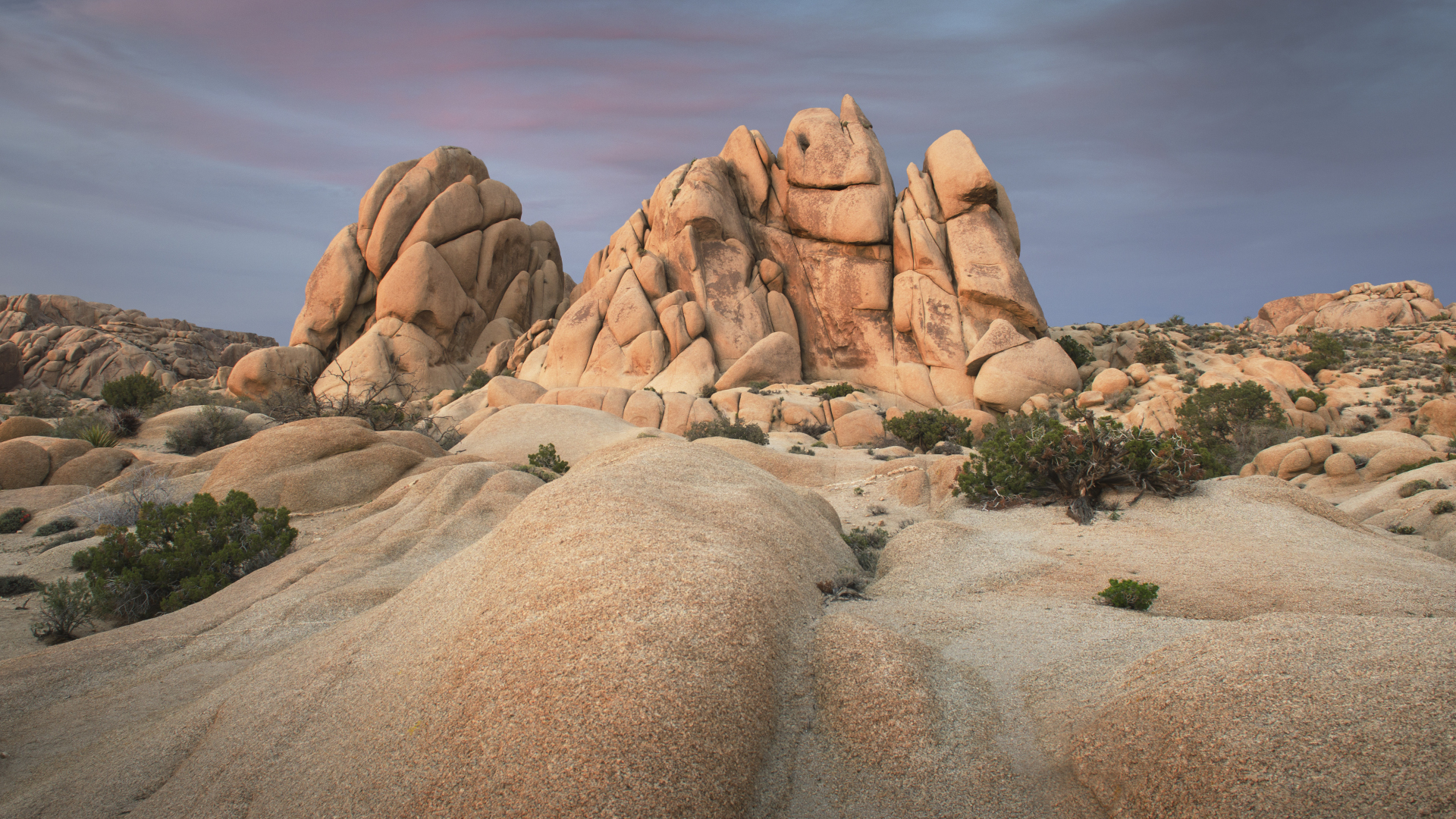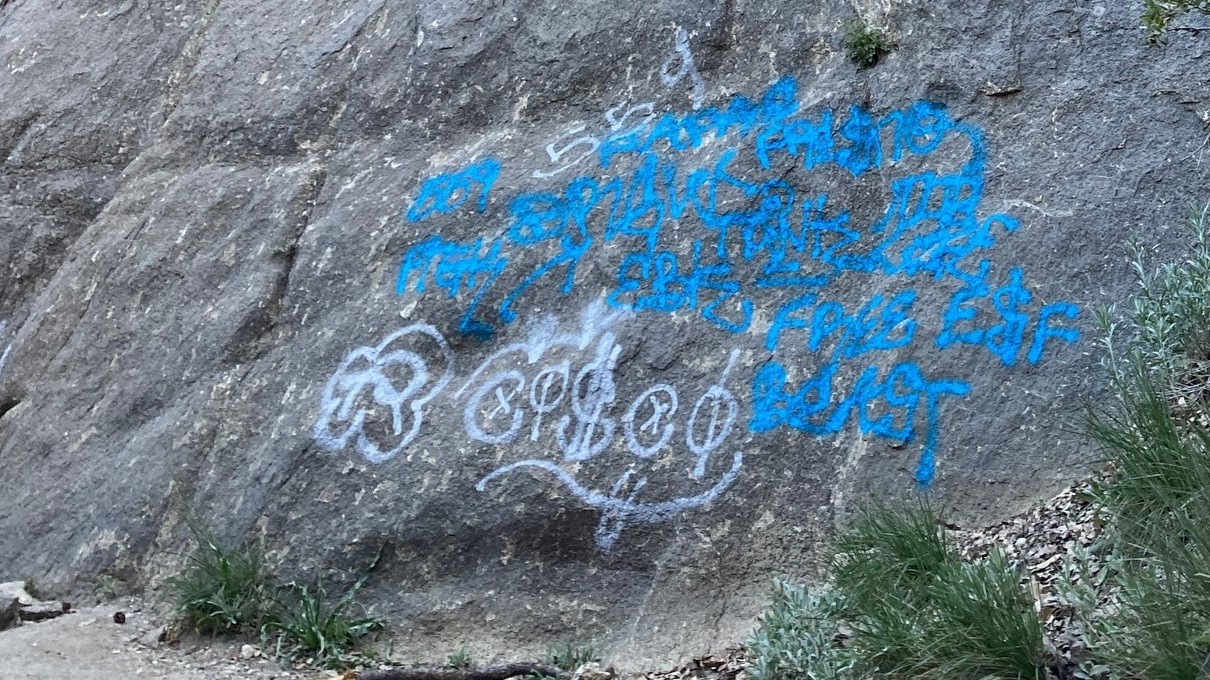
Three German tourists have been cited with vandalism of a National Park after firing paintballs throughout Joshua Tree in California.
The alleged incident took place on August 4, when a park ranger who was patrolling the Jumbo Rocks Campground near the west entrance noticed fresh yellow paintball splatter on various structures and signs, according to a press release by the National Park Service. Paintball markers and slingshots are legally considered weapons and prohibited in lands managed by the NPS.
Further law enforcement rangers were called in to investigate and discovered a slingshot in plain view inside a vehicle. When they questioned the drivers of the vehicle – three visitors from Germany – they admitted causing the damage the previous night.
Upon searching the vehicle, rangers discovered more paintball paraphernalia including three slingshots, a paintball marker and paintballs. They also later learned that the suspects had targeted at least 11 roadway signs along Park Boulevard between Jumbo Rocks campground and the Maze Trailhead.
The suspects have been charged with vandalizing, defacing, or destroying property in a National Park, an offence that incurs a maximum penalty of a $5,000 fine and/or up to six months in prison.
“Defacing or altering the NPS landscape, no matter how small, is against the law,” says Joshua Tree National Park Acting Chief Ranger Jeff Filosa.
“It diminishes the natural environment that millions of people travel the world to enjoy."
Filosa says park officials are regularly tasked with removing graffiti, which drains time and resources "that could be better dedicated to other priorities.” Furthermore, as we've previously explained in our article on so-called tagging in wild spaces, graffiti is bad for the environment, releasing toxic chemicals into wild habitats.

How to leave no trace in the wild
Vandalism in National Parks can carry a hefty penalty, but that's not the only reason to avoid it. Any time you enter a wild space, whether you're roaming the trails in your hiking boots or pitching a tent for the night, you're expected not to leave a footprint. Keeping the wilderness pristine doesn't just ensure that other people get to enjoy it – it helps protect natural habitats to support healthy ecosystems.
In essence, when you're traveling in the backcountry, you're expected to adhere to the following principles:
- Plan ahead and prepare
- Travel and camp on durable surfaces
- Dispose of waste properly
- Leave what you find
- Minimize campfire impacts
- Respect wildlife
- Be considerate of other visitors
You can learn more about the ins and outs of how to recreate responsibly in the backcountry in our article on Leave No Trace.







